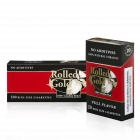The Role of Cigarettes in Windsor's Border Culture
Windsor’s border culture is deeply entangled with the international tobacco market, notably with nearby Detroit, showcasing a unique dynamic shaped over time. This bond has facilitated a distinctive blend within the tobacco trade, drawing parallels with the broader socio-economic landscape present in these bordering regions. With a history rich in cross-border exchanges, Windsor’s smoking habits and preferences uniquely mirror a synergy of both American and Canadian influences. This blending of tobacco practices reflects not just the geographical closeness but also a subtle melding of cultural nuances and market trends related to tobacco use and trade in these areas. This connection continues to influence the local tobacco scene in Windsor significantly, leaving an indelible mark on its border culture with Detroit, a relationship both intricate and multifaceted.
Cross-border Tobacco Trade with Detroit
Origins and Drivers
The cross-border tobacco trade between Windsor and Detroit boasts deep historical roots, weaving a complex tapestry of shared economic and cultural ties. This trade dynamic did not emerge in a vacuum; instead, it has been nurtured and fortified by the geographical closeness and subtle cultural affinities shared between these two vibrant regions. The seamless flow of goods, most notably tobacco products, across borders paints a vivid picture of a symbiotic economic relationship that has developed and matured over the years, highlighting a mutual dependency and shared history that is hard to overlook or understate. This trade, while significant, is part of a broader narrative of interdependence and cooperation, marking the regions' shared destinies and common economic interests.
At the crux of this thriving trade lies the origins and drivers that have been pivotal in shaping and sustaining it through various historical epochs, providing valuable insights into its character and significance. The undercurrents driving this trade are multifaceted, reflecting a convergence of economic, cultural, and social factors that have worked in tandem to foster and cement these cross-border ties. The impetus for this sustained engagement in the tobacco trade can be traced back to the regions' inherent cultural similarities and the geographical proximity they enjoy. These foundational elements have not only facilitated but actively encouraged a robust flow of tobacco goods between Windsor and Detroit, contributing to a vibrant and dynamic economic landscape that continues to thrive and evolve. The intricate web of trade relations encapsulates a spirit of mutual benefit and understanding, where cultural familiarity and geographical adjacency play a crucial role, acting as the linchpins sustaining this enduring and profitable economic engagement over time.
Economic Aspects and Challenges
The economic exchange through the tobacco trade between Windsor and Detroit has long been a significant component of Windsor's economy, bringing essential revenues and fostering local businesses. This economic phenomenon isn't trivial, given its enduring impact on the local commercial fabric and the livelihoods of many individuals who depend on this intricate web of trade relations. The financial gains derived from the tobacco trade have proven vital in sustaining Windsor's economic vitality, underscoring the significance of these cross-border interactions that have been both lucrative and economically empowering for the region. Notwithstanding its economic value, the Windsor-Detroit tobacco trade is not without its share of intricate challenges and impediments, which businesses must navigate to maintain a profitable stance in this competitive market.
However, an analysis of the economic landscape reveals a series of challenges facing businesses engaged in the Windsor-Detroit tobacco trade, primarily arising from the disparate tax structures and regulatory frameworks prevailing in the two jurisdictions. The divergent taxation policies regarding tobacco products, coupled with differing regulatory stipulations, have instituted a complex economic environment wherein businesses must operate. These disparities in tax regimes and regulatory guidelines have necessitated businesses to adopt adaptive strategies and maneuver carefully to mitigate the risk of economic losses, whilst capitalizing on the opportunities presented by the cross-border tobacco trade. This scenario creates a precarious balance where the economic benefits derived from the trade are often offset by the complexity and challenges posed by the differing administrative and fiscal policies, making it imperative for businesses to stay agile and responsive to the ever-evolving economic and regulatory landscape. These challenges, while daunting, are part and parcel of the cross-border trade tapestry, necessitating a nuanced understanding and strategic approach to navigate successfully through the economic maze and extract value from the vibrant tobacco trade between Windsor and Detroit.
Windsor’s Unique Smoking Culture Influenced by American Proximity
The Blending of Tobacco Practices
Windsor showcases a distinctive smoking culture, meticulously crafted from a dynamic blend of Canadian and American influences, serving as a vivid testament to its proximity to the United States. This unique cultural tapestry is predominantly characterized by the residents' smoking habits and preferences, which have been significantly molded and influenced by American tobacco practices and products over time. Such exposure has not only seamlessly integrated American tobacco nuances into Windsor’s smoking practices but has also contributed to creating a smoking culture that is markedly unique and inherently reflective of this blend. The resultant tobacco culture in Windsor is a fascinating interplay of varied practices and preferences, bringing forth a distinctive character that is both intriguing and representative of the confluence of influences it embodies. This cultural intersection, while subtle, plays a pivotal role in defining and shaping the smoking-related behaviors and preferences of Windsor’s residents, offering a rich and nuanced insight into the broader socio-cultural dynamics at play in the region.
Influence of American Brands and Marketing
Near Windsor, the impactful presence of American tobacco brands is unmistakable, exerting a significant influence over the area's smoking culture due to their compelling marketing strategies and widespread recognition. The allure these American brands emanate irresistibly sways Windsor’s smoking populace, subtly crafting, and dictating their tobacco consumption preferences and perceptions. This pervasive influence essentially reshapes the local market dynamics, casting a profound shadow over indigenous products, often sidelining them in the commercial arena. The magnetic appeal and marketing prowess displayed by American tobacco giants not only captivate the attention of consumers in Windsor but also actively shape their buying behaviors, creating a market environment where American products enjoy a prominent and favorable position. This scenario delineates a market steeped in the allure of foreign brands, where the preferences of local smokers are significantly swayed by the marketing narratives and brand images meticulously crafted by American tobacco firms, ultimately defining Windsor’s unique smoking culture and market trends.
Impact of Border Regulations on Local Tobacco Businesses
Regulatory Challenges
Border regulations indeed wield a substantial impact on Windsor's tobacco businesses, establishing a challenging operational landscape marked by legal and regulatory flux. The businesses located here find themselves ensnared in a network of complex international, federal, and local laws that consistently shift, producing an environment of uncertainty and unpredictability. This fluid legal framework not only introduces an array of challenges but also mandates that enterprises remain agile and informed, adjusting their strategies to navigate through the labyrinthine regulatory environment efficiently. The uncertainty stemming from the constantly changing laws significantly complicates the business landscape, necessitating that companies engage in a perpetual balancing act to align with the legal prerequisites while also safeguarding their commercial interests. For tobacco businesses in Windsor, this means existing in a state of continuous adaptation and vigilance to ensure compliance and sustain operations amidst a multifaceted and ever-evolving legal panorama.
Survival Tactics by Local Tobacco Vendors
In response to the daunting regulatory challenges present, tobacco vendors in Windsor have ingeniously devised and implemented a variety of survival tactics aimed at ensuring business continuity and sustainability. These crafted strategies are multifaceted, involving the astute diversification of product offerings, an approach that not only broadens the available selection for consumers but also serves as a buffer, safeguarding businesses against potential market fluctuations and shifts in consumer preferences. Additionally, these vendors actively engage in meticulously planned promotional activities, a tactical move designed to magnetize and secure a loyal customer base. Through these promotions, vendors effectively enhance their visibility and appeal amongst consumers, thereby fostering a sense of brand loyalty and encouraging repeated patronage. Together, these innovative strategies form a robust framework, empowering local tobacco vendors in Windsor to navigate the treacherous regulatory waters successfully while simultaneously bolstering their market position and safeguarding their operations from the inherent unpredictability and volatility of the tobacco industry. These approaches reflect not just adaptability but also a deep understanding of the market's intricacies, showcasing resilience and strategic planning.
The Evolving Tobacco Landscape in Windsor
Changing Consumer Preferences
Windsor's tobacco landscape has witnessed a significant transformation due to the evolution of consumer preferences over time, mirroring global shifts in the tobacco market. This change is markedly characterized by a notable migration towards alternative smoking products. The consumer base in Windsor has demonstrated an increased inclination for options perceived as healthier and more convenient, aligning with a broader, global trend that leans towards consciousness about health and well-being. The preference for alternative products, which promise a supposedly healthier experience, has altered the traditional tobacco market's dynamics in the region. This move denotes a transition in lifestyle choices and a shift in consumption patterns of tobacco users, who are now more inclined towards innovative products that not only offer a different experience but also align more closely with their health objectives and convenience. This evolution reflects not only the changing tastes and demands of consumers but also the market's adaptive responses to these shifts, highlighting a tobacco landscape in Windsor that is both dynamic and responsive to its consumers’ shifting needs and expectations.
The Rise of Alternative Smoking Products
In Windsor, the burgeoning market for alternative smoking products, notably e-cigarettes and vaping devices, has undergone substantial expansion, signaling a pivotal shift in the local tobacco landscape. This growth has not only brought about an influx of different products but has also successfully drawn in a varied and diverse consumer base, thereby altering the contours and dynamics of Windsor’s traditional tobacco market. The rising popularity of these alternative smoking options among different age groups and demographics has resulted in a transformative effect on consumer behavior and market trends in the region. As these products continue to gain traction, they systematically redefine smoking practices, carving out a significant niche within the broader tobacco industry in Windsor. The ascendancy of e-cigarettes and vaping devices encapsulates the evolving preferences of consumers, showcasing a market that is progressively inclined towards embracing novel, perceived as less harmful, and innovative smoking alternatives. This shift underscores the dynamic nature of Windsor’s tobacco market, reflecting changing consumer demands and the advent of products that align with contemporary lifestyles and health consciousness.
Cigarette Smuggling: A Hidden Element
Prevalence and Reasons
Cigarette smuggling, while operating beneath the visible surface of Windsor’s tobacco trade, plays a substantial, albeit covert, role in the area’s market dynamics. This clandestine trade element is significantly driven by the noticeable discrepancies in tobacco taxes and pricing structures existing between Windsor and its neighboring city, Detroit. Such financial disparities naturally create a fertile ground for smuggling activities to flourish, as traders seek to exploit the price differentials for illicit gains. The subsequent influx of smuggled cigarettes into Windsor's market not only introduces a stealthy yet potent force that influences the local market's functioning but also alters its inherent dynamics, creating a ripple effect that is felt across various facets of the trade. This under-the-radar prevalence of cigarette smuggling, while often overlooked, constitutes a critical factor that shapes Windsor's tobacco market, underscoring the need for a deeper understanding and acknowledgment of its implications and the driving reasons behind its persistence.
The Counteractions Taken
In response to the covert yet substantial issue of cigarette smuggling in Windsor, a series of counteractive measures have been meticulously deployed. These initiatives encompass a strengthened framework of border security protocols and heightened surveillance mechanisms, collectively aiming to staunch the illicit flow of tobacco products across the border. This robust security apparatus is complemented by the imposition of severe penalties designed to act as a deterrent against participation in the unauthorized tobacco trade. Individuals found to be complicit in these illegal activities now face stricter legal repercussions, a strategy integral to discouraging the perpetuation of smuggling practices. Together, these deliberate and targeted counteraction measures form a comprehensive approach to mitigating the impact of cigarette smuggling on Windsor’s tobacco market. This approach signifies a concerted effort to safeguard the integrity of the local market while simultaneously addressing the complex challenges posed by smuggling, thereby contributing to the establishment of a more secure and regulated tobacco trade environment in the region.
Conclusion
The deeply intertwined relationship between Windsor and Detroit significantly molds Windsor’s tobacco landscape, exerting a substantial influence over trade, consumption habits, and the market’s overall dynamics. This unique border culture not only showcases a shared, complex history but is also a testament to the ongoing evolution of the relationship that mirrors the wider socio-economic and cultural shifts unfolding within both areas. The impact on the local tobacco scene is undeniable, with the cross-border culture playing a pivotal role in shaping and driving various facets of the trade and consumption in Windsor. As this relationship continues to evolve, it reflects and encapsulates broader changes and adaptations occurring on a socio-economic and cultural level in both regions, offering a fascinating insight into the dynamic interplay between culture, economics, and the tobacco trade in the Windsor-Detroit corridor. Each change in consumption patterns and market dynamics in the tobacco scene is a direct reflection of this enduring and ever-changing relationship, highlighting the intricate tapestry of shared history and mutual influence that defines the border culture between Windsor and Detroit.
FAQs
How has Windsor’s smoking culture evolved over time?
Windsor’s smoking culture has evolved through exposure to American tobacco products and practices, changes in consumer preferences, and the rise of alternative smoking products.
What challenges do local tobacco businesses face in Windsor due to border regulations?
Border regulations create a complex legal environment, posing challenges related to taxation, product compliance, and market access for Windsor’s tobacco businesses.
Why is cigarette smuggling prevalent in Windsor?
The disparity in tobacco taxes and prices between Windsor and Detroit is a key driver of cigarette smuggling.
How have American tobacco brands influenced Windsor’s market?
American brands have significantly influenced consumer perceptions and preferences in Windsor, often overshadowing local products.
What measures have been taken to counter cigarette smuggling in Windsor?
Enhanced border security, surveillance, and stricter penalties have been implemented to curb cigarette smuggling.
References
- Ontario Tobacco Research Unit: otru.org
- Tobacco Use in Canada: tobaccoreport.ca
- Statistics Canada: www.statcan.gc.ca



